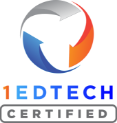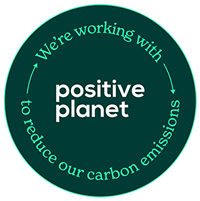Dr Diana Tolmie, Senior Lecturer from Griffith University on ‘Course-specific Employability Skills ’ in Music. This recording is from our 2022 Brisbane, Australia MiniBash community event. Videos are for educational personnel only and require a live educational email to watch. You can read the video transcript below.
Transcript:
Excellent. Alright. Well, thank you very much much once again to PebblePad for having me here today. So yes, I’m Diana told me and I’m at Queensland Conservatorium at Griffith University, my title is senior lecturer of Professional Practice, and I run a suite of courses called My Life is a musician which is held in the bachelor of music degree at the Queensland Conservatorium which is actually on this campus which is fantastic And what I wanted to do today is take you through the two assessments that we have for the first years. So this bachelor of music sorry, this my life as a musician course particularly in first year is centered around allowing the students an opportunity to understand what it means to be a musician and to understand what vocation preparation is required particularly upon graduation and house she engaged with their degree and and with the profession itself.
So what I wanna do next is not anything like that. Let’s see. Does this? Let’s see.
Just Oh, back.
Sorry.
Right. And the one that we click on just on the logo? That one. You’ll act so clever.
Very good. Thank you very much. So so yes, this has been a pebble pads exemplar and so we have two assessments. The first one is called the LSA and Digital Story Workbook.
And so what I do is very much in the first week of their course is that they have to answer five basic questions and those basic questions set up a blueprint as to how they’re going to sort of navigate their career. So we’re looking at intrinsic and extrinsic motivations for being a musician and also their pre knowledge as to what shipping a musician means. So the first question, what do you love about music actually is actually asking them what are your values? And then we have what do you want long term to do with your music, so what’s their visioning?
And also why they think that is who inspires them to be good musician and what skills and knowledge is are they going to need to achieve their dreams. So more on that soon, But the assessment that they have to do for their first assessment is what we call a digital story and the idea behind that is because musicians, lives, and sessions are heavily network based, very referral based, and they need to sort of understand the ask. They also need to have a good grasp of digital literacy as well and also actually going out and meeting people and developing their social capital. So what they then have to do is they have to find two musicians that professionals.
They can be emerging artists. They can be established. They can actually be people who have retired and then they go and actually ask five questions I can ask more, but the first ones describe your career journey to date and that relates to how do you navigate your career? What do you what patterns does your career follow?
So that can be Happenstance learning theory, chaos career theory, super’s lifespan theory, but also they get to sort of understand the terminologies of protein and portfolio bound gorillists and the list goes on and on. Discuss the highs and lows of your career journey so we know that arts lives, artistic lives are very tough and very much reliant on understanding navigating resilience. So they find out that the lows actually are the learnings and the highs actually come out of those lows as well and there’s the concept of identity threat where basically you can sometimes be flung out into the depths of failure or actually the depths of success and that in itself can actually threaten your sense of self and your identity and how you see yourself as a professional.
And then also we also understand that yes financially, musicians have to sustain their career but also artistically, again, it sort of centers in that concept of lifelong learning where it might be a case that just performers suddenly become well, not suddenly be decide to become composers.
They might also be in a stage of their career where they have to make compromises in having family and and basically earning money in certain ways. The next one is how do you or would like to communicate music value to the non arts public, and that’s deliberately worded to be antagonistic, and we often find that those musicians say, what do you mean by non public. But basically it’s talking about, you know, economic contribution, arts as a service, arts as identity, and those conversations ensue. And then the last one, what advice would you give an undergraduate musician?
And the students have to basically sort of distill that advice understanding why those musicians have come to that advice in the first place based on whether they are emerging established, what fields they actually work in, what country they actually have sort of reside in to successfully navigate their career and therefore why have they come to that conclusion in addition to providing actually really excellent advice to our student musicians. So we use this pebble pad to pop in a whole swag of information I call it hitting them over the head with a baseball bat.
And and and then they upload their digital story once they’ve formulated that’s a nine minute digital story that basically has a voice over. Is that a five? That was a three. Nicely.
So there was So formulating a digital story, and I’m in a digital story that has voice over of themselves, has you know, videoed elements and clips that basically form this really nice conversation and story and I also give them feedback options they can choose their own adventure with the feedback however they like it as well. The next one now this then leads to scaffolded on the opportunity research for and I was really happy to hear Sally a lot of what you’re talking about today because I was like, yes. Yes. Yes.
Yes. That ticks all that. That’s really good. I’m really thrilled about that. So opportunity is something that we we need to actually have opportunity recognition is a skill that musicians really rely on.
So In other words, that really rubbish gig that you were doing might be really rubbish and non enjoyable thing, but it might lead to something else that’s not so bad. Okay? In other words you just never know who’s gonna be in the audience. You never know who you’ll be performing with, etcetera etcetera.
So there’s also the way that musicians start out with their careers is they say yes to a lot of things and that unfortunately can lead to burnout, so we have to actually then understand how to say no. So we start off with what’s your positive future self And with that, the students are then charged to do a swot analysis objectively of that career. Strengths weaknesses, and that can be the love’s choose, like, choose, have choose, hate’s of the the career itself. But then they also have to recognise that that career has opportunities and threats that occur irrespective of that job and then they have to basically analyze that.
This then so again, objective, nothing to do with them leads towards analyzing self. What are my superpowers?
What are my activities that I’m currently doing at the moment that actually align with this kind of aspiration that I have are there deficits? Do I need to develop something? So we have the strengths and the developments that they can navigate and literally research for themselves Then what we lead to is an artistic citizenship statement which I call a elevator pitch with ethics So in this respect, it goes back to what do you love about music? What are your values? And the students are charged with developing an eighty word artistic citizenship statement that defines who they are, what art form they’re operating, why they’re doing what they’re doing, what their planned legacy is, what their values are, and then they formulate that. And the idea behind that is that when people say why are you a musician and aren’t you the derelict scum of society, then they can basically say, well no this is what I’m about and communicate their value.
The next section is the opportunity research report which they have six to eight hundred words with the criteria of course skill development, degree engagement, network building, independent enterprise in which to basically say, okay, I’ve got the next four years what are my opportunities? Can I research that? It’s not a plan and I say that to students it’s not a plan because things happen left to field. We’ve chaos, career theory happenstance, etcetera.
It’s not a plan because normally I get some kickback from students saying I can’t even imagine what I’m having for lunch tomorrow and you’re trying to ask me to do the next four years is not a plan. And so they fill that out. The enterprise area is just designing an invoice. However, they have to work out what are the pay structures and fee structures and actually have to research those as well and plus it’s not just about financial health.
It’s mental physical and oral and they have a little musicians health plan in addition After they’ve had this wonderful experience through the entire trimester they get to sit down and reflect upon it and they have to put together a two to three minute video basically describing how it has on their thinking and they were too next. And that’s it.







